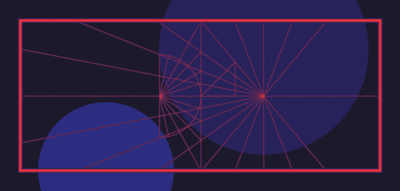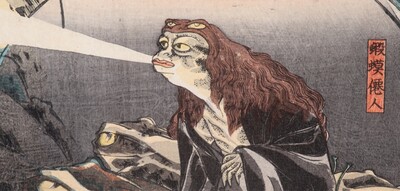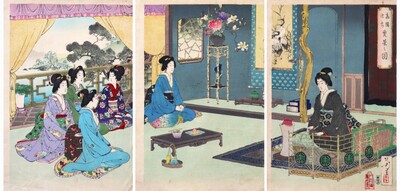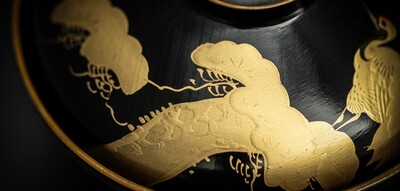At the Manggha Museum, we study and show the mutual cultural relations between Poland and Japan, the East and the West. In this context, one must not omit to mention our long-term exhibition and research project focusing on Polish Japanism, highlighting the various manifestations of the influence that Japanese art had on the work of major Polish artists, such as Leon Wyczółkowski, Julian Fałat or Anna Bilińska. We consistently popularise knowledge about Japan, both in our own spaces and through activities at other cultural centres and venues around Poland. We reach various audiences by offering a wide array of events and activities, both at the popular and at the specialist, scholarly levels. We conduct comprehensive educational activities based on our own original programme.
Almost every day our museum is visited by groups of pupils and students, to view our current exhibitions, but also to take part in additional activities prepared specifically for them. We hold educational exhibits targeting the youngest age group as well, such as: Japanese Puzzle or Kodomo no kimono, and also family meetings accompanying other exhibitions. Occasions that invariably attract large numbers of visitors are events held on a regular basis, often relating to traditional Japanese festivals. This category includes the monthly readings of Japanese fairytales or the celebrations of the Japanese Children’s Day, Kodomo no hi, organised every year.
All these are complemented by performances, demonstrations and workshops for viewers and participants of all ages, which offer opportunities to become acquainted with many different aspects of the Japanese culture in a very friendly and instructive way. The tea ceremony, bonsai, suiseki, or ikebana are just some of those aspects which can be experienced directly at Manggha. Since the foundation of our institution, we have had opportunities to view various forms of Japanese theatre and listen to Japanese music, both traditional and modern. Akira Matsui, Master Tsuruga Wakasanojō XI (Japan’s Living National Treasure), or Atsushi Takenouchi are only some of the notable artists who have given performances at our museum.
An important role in the Manggha Museum’s programme is played by scholarly activity, also of international significance. Lectures and conferences held at our venue have been delivered and attended by a great number of prominent artists and scholars from all over the world, not the least from Japan. It is also noteworthy that the meetings of our Academy of Japanese Cinema, which always include a film showing, enjoy unwavering interest.
Furthermore, the museum is home to Andrzej Wajda’s Archive and the Japanese Language School affiliated with the Japan Foundation.
The Europe–Far East Gallery became an integral part of the Manggha Museum of Japanese Art and Technology, with a mission of propagating the broadly defined art, culture and technology of Far Eastern countries.
Our institution’s unique character, its primary focus on the art and culture of Japan and the Far East, determines its reach: local (Kraków and Malopolska), nationwide (the only institution of such specialisation in Poland), and finally international, in the broad meaning of the term. Our interdisciplinary activity is manifested in many various ways.
Collection
The core of the collection is the body of artworks and artefacts accumulated by the Kyoto–Kraków Foundation, established by Andrzej Wajda and Krystyna Zachwatowicz-Wajda. It was donated to the museum in 2006 and 2007. Incorporated with a view to raising funds for the construction of the Manggha Centre, since 1994 the Foundation has been receiving gifts in the form of works of art, from artists and organizations with whom it cooperates to hold exhibitions and organize cultural events. In 2007, by a decision of the Minister of Culture and National Heritage, the Manggha Centre was granted museum status.
| Day of the week | Opening hours | ||
|---|---|---|---|
| Tuesday | 10:00 - 18:00 | ||
| Wednesday | 10:00 - 18:00 | ||
| Thursday | 10:00 - 18:00 | ||
| Friday | 10:00 - 18:00 | ||
| Saturday | 10:00 - 18:00 | ||
| Sunday | 10:00 - 18:00 | ||
| Holidays | Opening hours |
|---|---|
| 2025.08.15 (Friday) | x |
| 2025.11.01 (Saturday) | x |
| 2025.11.11 (Tuesday) | x |
| 2025.12.25 (Thursday) | x |
| 2025.12.26 (Friday) | x |
| Tickets | ||
|---|---|---|
| normal | 30.00 PLN | |
| reduced | 20.00 PLN | |
| family | 50.00 PLN | Opiekun + 3 dzieci do lat 18 lub 2 opiekunów + 2 dzieci do lat 18 |
| group | 120.00 PLN | do 30 osób |
| children free of charge up to the age of 7 |
| when? | name | where? | about what? | for free | for children | |
|---|---|---|---|---|---|---|
 | 2025.04.26-2025.08.10 | East-East. Wystawa sztuki współczesnej z Japonii Temporary exhibition | The Manggha Museum ul. Marii Konopnickiej 26 30-302 Kraków Lesser Poland | modern art | yes | |
 | 2025.06.01-2025.08.31 | Sto nocnych zjaw Temporary exhibition | The Manggha Museum ul. Marii Konopnickiej 26 30-302 Kraków Lesser Poland | graphics and drawing | yes | |
 | 2025.09.17-2025.11.16 | Echa Edo, przebłyski Meiji. Nowoczesna sztuka Mizuno Toshikaty Temporary exhibition | The Manggha Museum ul. Marii Konopnickiej 26 30-302 Kraków Lesser Poland | graphics and drawing | yes | |
 | 2025.11.30-2026.03.01 | Lśnienie czasu. Japońska laka w sztuce użytkowej Temporary exhibition | The Manggha Museum ul. Marii Konopnickiej 26 30-302 Kraków Lesser Poland | art crafts | yes | |
 | 2025.10.26-2026.05.05 | Shigeru Ban. Architektura i działalność społeczna Temporary exhibition | The Manggha Museum ul. Marii Konopnickiej 26 30-302 Kraków Lesser Poland | architecture | yes |